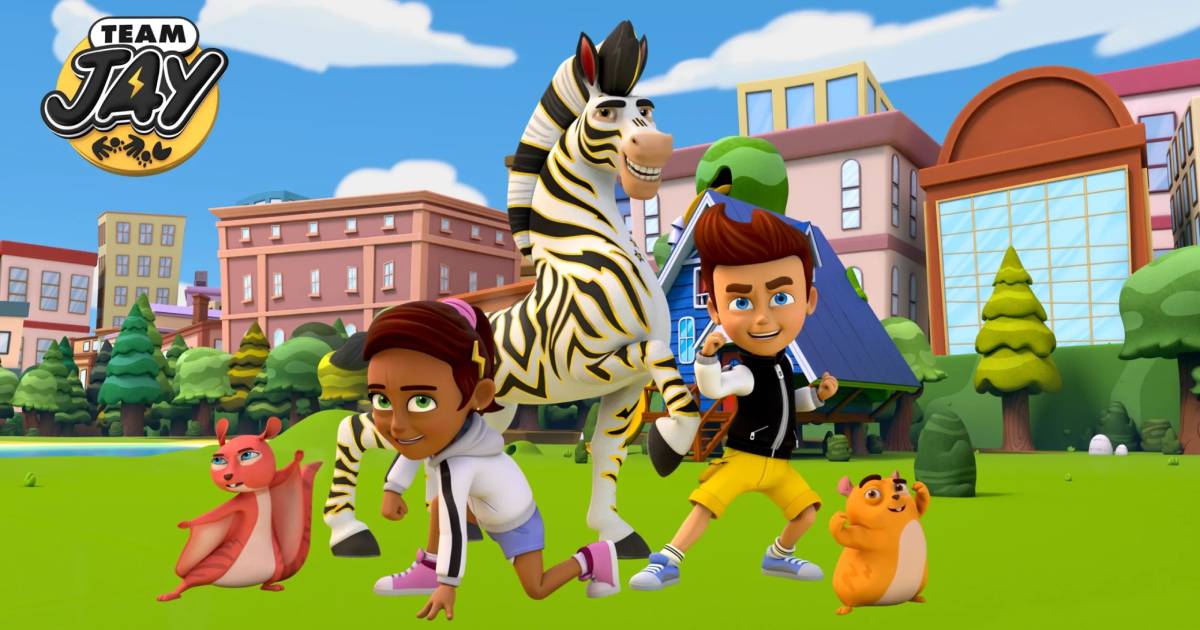Scoring with the Next Generation of Sports Fans

By Mark Seavy
As sports brands seek to reach ever-younger audiences, they’re deploying an array of strategies to raise awareness for their properties and increase the potential for licensing.
These efforts span many categories, including gaming, social media, and animated series. And while brands have long sought to attract and secure young audiences, the best way to engage meaningfully with these consumers is changing.
Italian soccer club Juventus, for example, recently launched a second season of its Team Jay animated series. These new episodes are a follow-up to the original season, which first aired on YouTube Kids in 2019. The series, which targets six- to 10-year-old children, has some soccer references but largely focuses on topics like mental health and environmental issues. Central to the series is the club’s mascot, Jay the Zebra, who embarks on mini adventures with four friends that challenge, among other things, their soccer skills.
Team Jay has 1.06 million subscribers on YouTube and Juventus is now developing licensing and merchandising programs separate from the soccer club, said Daniele Lunazzi, Head of Product Marketing at the Juventus Football Club. To further separate the animated series from the club, the show’s name was changed to Team Jay from Team Jay by Juventus. The series also made an appearance at the recent Lucca Comics & Games event in Italy, during which attendees could “talk” with the animated Jay character. Juventus also formed a Creator Lab to provide content for its fanbase and to tap into social media trends.
“The brands are trying to innovate. We created a great show [with] magical moments, and there is a big brand behind it,” said Jennifer Burgos-Watkinson, Founder of Eclipse Productions, which developed the Team Jay series. “Ultimately, there are some areas where there is overlap [with the football club], but otherwise it is about talking to new audiences. These are all future-proofing tools. It is about growing touchpoints but not to sell tickets [to soccer games].”
Disney, meanwhile, signed an agreement to add “ESPN Football Island” to Riot Games’ Fortnite platform, as it moves to cash in on the $1.5-billion it invested in the videogame developer earlier this year. Within the game, players participate in activities, challenges, mini-games, and a payload style feature called Touchdown Rush in which they guard a football from opponents as they move toward an end zone. “ESPN Football Island” is a branded Disney experience that’s separate from Fortnite’s main battle royale modes. Other Disney properties have been a frequent presence within battle royale, including a Marvel theme.
The programs from Juventus and Disney are among the more recent brand-building efforts in the sports world that have focused specifically on reaching younger audiences. These brands are focused on capturing the attention of Gen Z and Gen Alpha consumers who, by 2027, are forecast to spend more than two hours per day on gaming (against one hour and 21 minutes on social media). Many food and beverage companies are also invested in gaming in an effort to reach this demographic through traditional partnerships, product placements, and limited-edition flavors.
Prime Hydration’s Prime Energy drink, which has the financial backing of social media influencer Logan Paul, released an exclusive map in Fortnite Creative’s “Prime Red vs. Blue” game that allows players to choose sides and battle to win rewards. Unilever’s Knorr brand, meanwhile, launched its #ModTheVeg program after the company noticed that meat-based foods in videogames offered higher in-game points than vegetables. It worked with design studio MullenLowe and multiple gaming properties to change this, including Fortnite, Minecraft, Skyrim, and GTA V. Over the next year, Knorr is creating modifications to these games, enabling vegetable-based power-ups to offer more benefits than meat-based options.
“By tapping into gaming, brands can stand out in a crowded market, deliver memorable experiences, and build lasting relationships with their audience,” Charles Hambro, CEO & Co-Founder of the marketing firm GEEIQ said in an editorial post.




